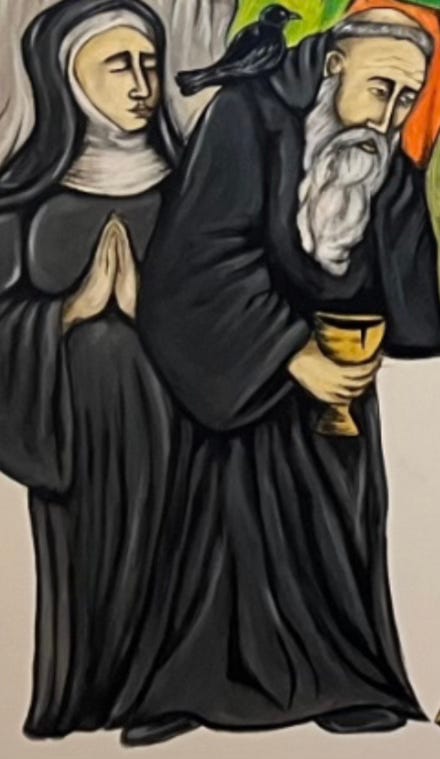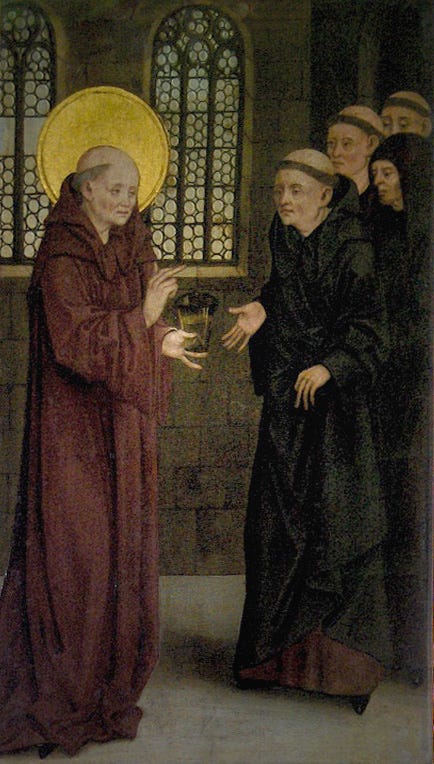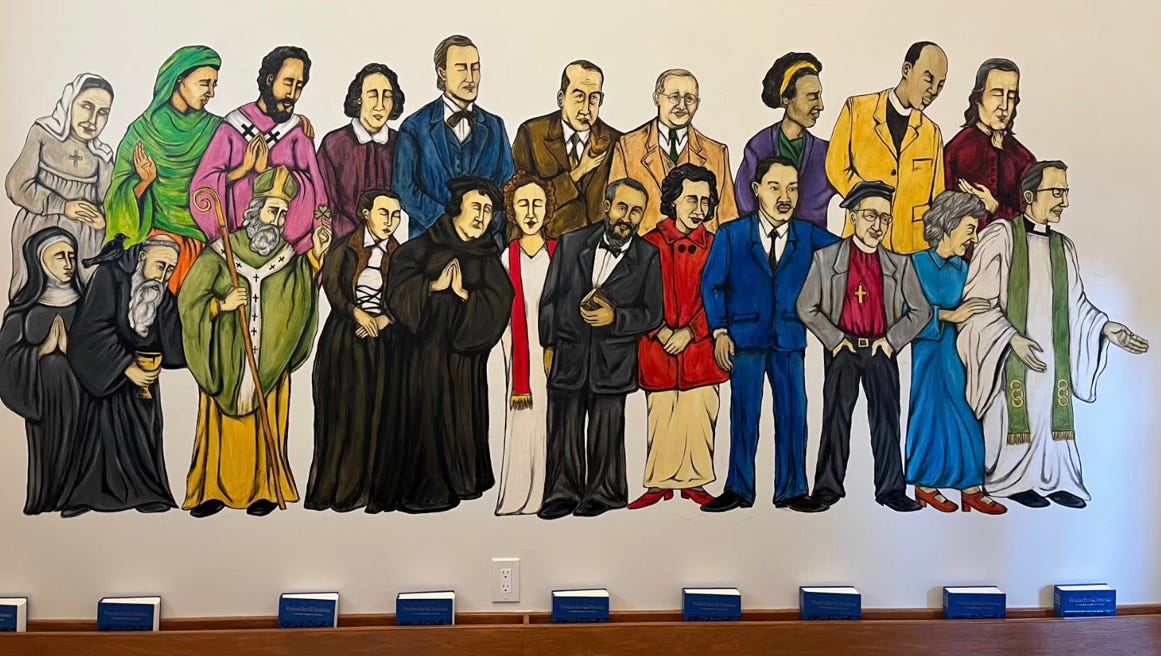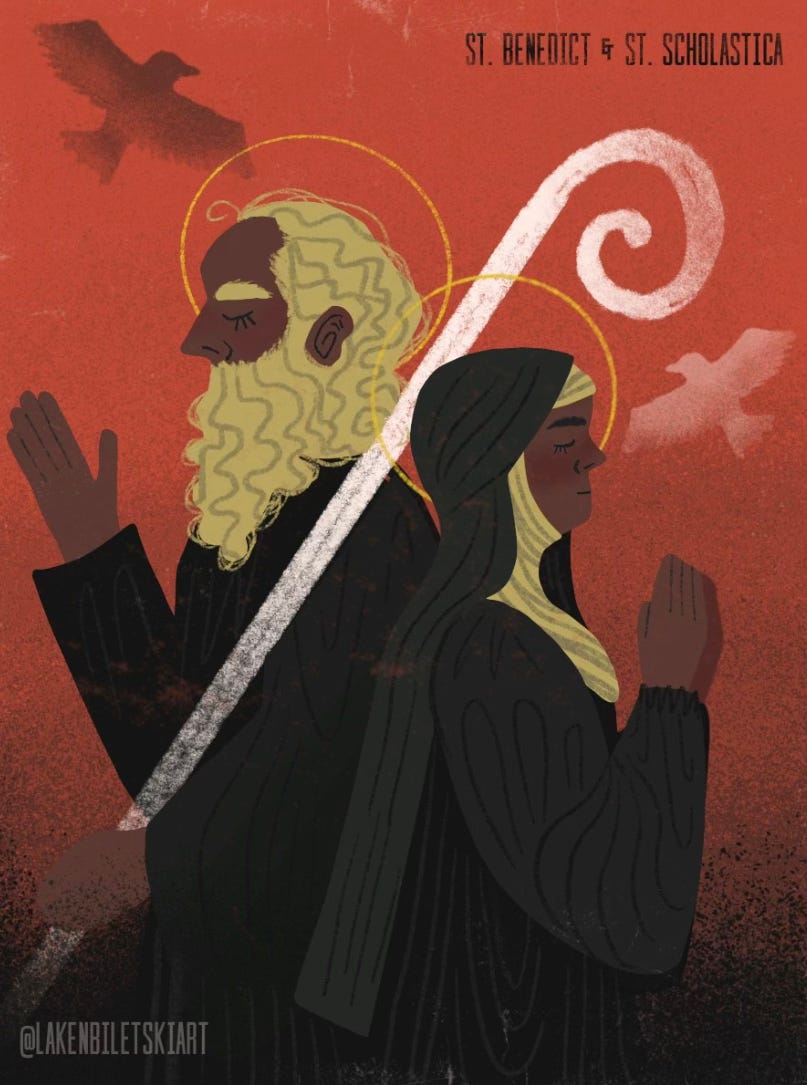
Miracles play a substantive part in Gregory the Great’s The Life of St. Benedict. Broken things are miraculously repaired. Heavy things are miraculously moved. The sick are powerfully healed. The weather is controlled. Poisoned goblets are miraculously broken. If you excised the miracles, there would be little remaining. They seem to serve a few purposes, also enlightening for us.
First, they reveal real poverty that needs provision, sickness that needs healing, obstacles that need moving, satanic strategy that needs exorcism, and differences that need reconciling. Many of these stories could be winked at as hagiographic, but they bear witness to something very real. There are real challenges in establishing a community. The opus Dei—the work of God—is not just something to which a community devotes itself but is the very thing for which the community is desperate.
Second, miracles show unarmored leadership that holds only a word and promise from God. Wisdom, charisma, emotional intelligence, or leadership principles may be helpful. But the central question regarding leadership in a Christian community is, does the leader bear the heart of God, the mind of Christ, in the power of the Spirit? This kind of leadership continually pointed to an authority behind or within Benedict. It is here that the need for a new Christian leadership becomes clear.
The leaders of the future will be those who dare to claim their irrelevance in the contemporary world as a divine vocation that allows them to enter into a deep solidarity with the anguish underlying all the glitter of success and to bring the light of Jesus there.1
Third, miracles show a developing working method. Problems are not solved by charisma, intellect, or willpower but by intercession. The community becomes a praying community out of necessity. Prayer is not a retreat from the real world. Prayer is the working method of advance. Prayer isn’t a pious break from problems but a powerful petition for the intervention of God. Many moderns don’t live in a miraculously charged, enchanted world, to use Charles Taylor’s term. Benedict did. I grew up in one, too, and never grew out of it. I’ve seen too much—experienced too much—otherwise unexplainable apart from a Divine intervention of grace. Miracles are necessary for building leaders who build communities, especially in an earthquake.







You should write a book that has all these great messages!
Hurrah for St. Benedict’s Day. Also, my Mom went to college at St. Scholastica in Duluth . Double hurrah. What a wonderful message.